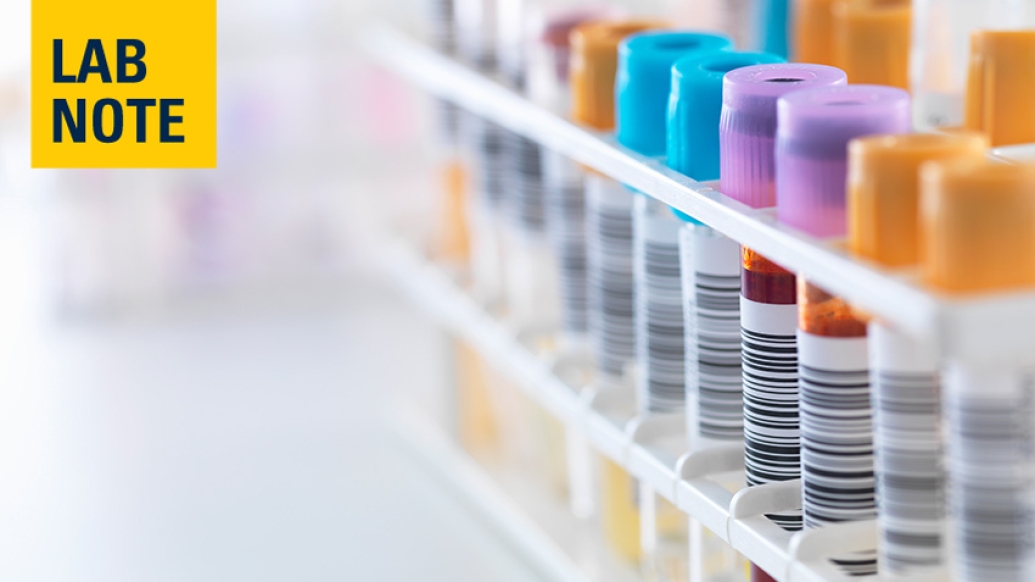Alert in doctors’ ordering system about scarce supplies leads to 29% drop in blood clotting tests; could provide model for other efforts to encourage wise use.
9:50 AM
Author |

A pandemic-related shortage of a mundane item – tubes to collect blood samples from patients – has caused headaches for health systems worldwide.
But it may also have a silver lining: A lesson in how to reduce unneeded medical tests, whether or not there's a shortage, according to a new study.
The shortage of "blue top" blood test tubes gave researchers a chance to see if alerting doctors at the moment they're placing an order could encourage them to seek a test only when results will immediately affect care.
In the new study, published in JAMA Internal Medicine, an alert led to a nearly immediate 29% drop in orders for one common test. The reduced level persisted for months.
"This shows that small interventions can make a big difference, and suggests the potential for other types of low-value care to benefit from a similar intervention," said lead author Madison Breeden, M.D., a fellow in infectious diseases at U-M Health who conducted the study during her year as chief resident of Quality and Patient Safety. She's already exploring if the approach might reduce unnecessary prescribing of antibiotics.
Breeden and her colleagues describe what happened in spring 2021 when University of Michigan Health supply chain and pathology experts began worrying about a potential shortage of "blue top" tubes. The pandemic had created very high demand for the chemical the tubes contain: sodium citrate, which stabilizes blood samples until a laboratory team can analyze three blood clotting-related properties, called PT, INR and PTT.
After emailing all providers, U-M Health added a "best practices alert" to doctors' test-ordering electronic system. They could still order PT/INR/PTT tests, but were asked for "thoughtful restraint in reflexive ordering."
The alert began popping up a month before the United States Food and Drug Administration issued an official shortage notice and the issue got widespread attention. The shortage continues today and has grown to other types of tests.
The researchers looked at what happened for six months after the alert began appearing at U-M Health, and compared it with data from six months before.
"There are very important reasons to order this test in some patients, for instance before an operation or when managing certain conditions and treatments," Breeden explained. "But it may also be part of a standard order set that's put in during an emergency department visit and continues to be ordered repeatedly after the patient is admitted to the hospital, even though the results won't change their care."
For such patients, a one-time test might be indicated, but not repeated testing.
Busy doctors entering orders for tests don't tend to think about the supplies and people power needed to carry out those tests, Breeden notes. In the face of a shortage, or of strong evidence that a test is often over-ordered, an alert could help prioritize the tests for those who need them most.
Canadian experts have actually flagged PT/INR/PTT tests as a target for reducing unnecessary care, through the Choosing Wisely program. So has the American Society for Clinical Laboratory Science, a medical professional group.
In addition to Breeden, the study's authors are Steven J. Bernstein, MD, MPH, Rodney A. Hayward, MD, and A. Mark Fendrick.
Paper cited: "Evaluation of a Best Practice Advisory on Ordering Prothrombin Time, International Normalized Ratio, and Partial Thromboplastin Time Tests," JAMA Internal Medicine. DOI: 10.1001/jamainternmed.2022.2609

Explore a variety of healthcare news & stories by visiting the Health Lab home page for more articles.

Department of Communication at Michigan Medicine
Want top health & research news weekly? Sign up for Health Lab’s newsletters today!





